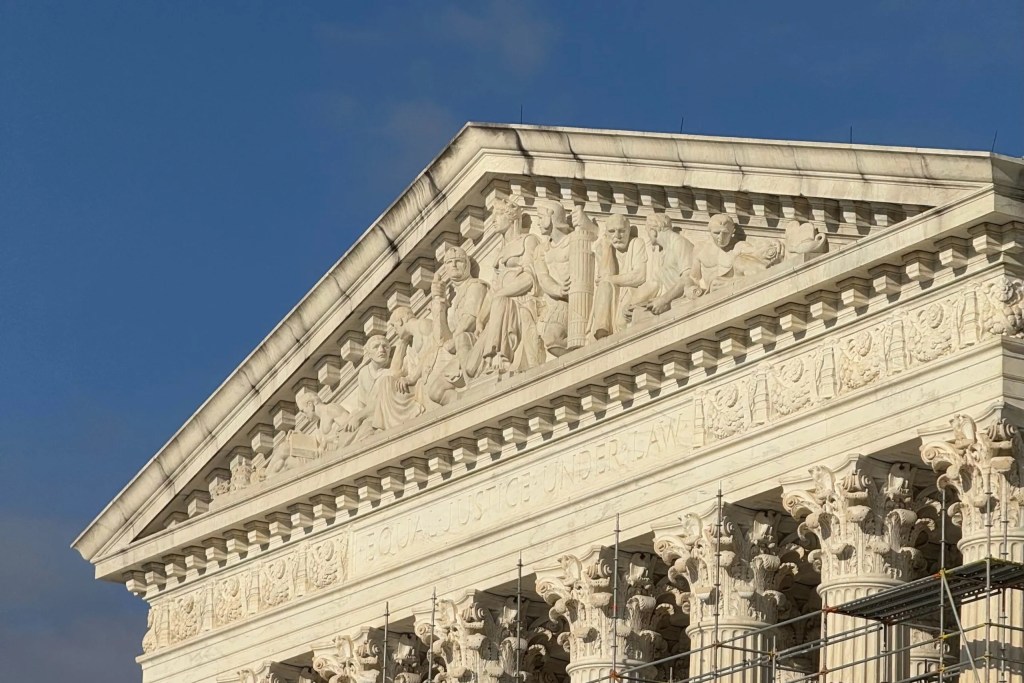Justices send litigation about tainted baby food back to state court
Justices reveal little about whether the deadline for removing cases to federal court can be excused
Court holds that U.S. Postal Service can’t be sued over intentionally misdelivered mail
More news
The sudden return of summary reversals
Nuts and Bolts is a recurring series by Stephen Wermiel providing insights into the mechanics of how the Supreme Court works.
A Supreme Court shortcut for deciding cases without full briefing and oral argument is experiencing a rebirth after languishing from disuse for several years.
The procedure is called summary reversal.
For decades the court used summary reversals to correct errors by lower courts. But the practice seemed to go dormant between 2021 and 2024. There is no clear explanation for why the use of summary reversals plummeted. But of late, summary reversals are back.
Continue ReadingOpinions for Tuesday, February 24
On Tuesday, Feb. 24, we were live as the court released its opinions in The Hain Celestial Group, Inc. v. Palmquist and U.S. Postal Service v. Konan.
Continue ReadingStanding in and after Bost
Controlling Opinions is a recurring series by Richard Re that explores the interaction of law, ideology, and discretion at the Supreme Court.
The Supreme Court’s recent decision in Bost v. Illinois State Board of Elections is the most fascinating standing case in some time. After Illinois adopted a procedure for counting mail-in ballots received after Election Day, Congressman Michael Bost claimed a violation of federal law. But, in the absence of a specific reason to think that he might lose the election due to the Illinois procedure, did Bost have standing – that is, was he a proper plaintiff in federal court? A five-justice majority said yes, holding that candidates for office have automatic standing to challenge ballot-counting procedures, regardless of whether they will affect the election outcome. Four justices in separate opinions would have rejected that holding.
Continue ReadingCourt grapples with disputes over efforts to recover losses from Cuban confiscations
In a pair of oral arguments on Monday, the Supreme Court wrestled with disputes over whether U.S. companies can recover under U.S. law for losses resulting from the confiscation of property that they owned in Cuba more than 65 years ago. In Havana Docks Corporation v. Royal Caribbean Cruises, the justices considered a claim by Havana Docks, which before 1960 had owned a right to use and operate the docks in the port of Havana, that it was entitled to receive hundreds of millions of dollars from cruise lines that brought tourists to the port between 2016 and 2019 – even if the company’s right to use the docks had been scheduled to expire in 2004. And in the second case, Exxon Mobil v. Corporacion Cimex, the justices heard arguments over whether Cuban state-owned companies are immune from a lawsuit brought by Exxon Mobil, seeking compensation for the confiscation of assets owned by subsidiaries of Standard Oil, Exxon Mobil’s predecessor. In both cases, several justices had tough questions for both sides, and Chief Justice John Roberts was all but silent, making it difficult to predict how the court will rule.
Both cases involve the interpretation of the Cuban Liberty and Democratic Solidarity Act, also known as the LIBERTAD Act or as the Helms-Burton Act, after its sponsors. Title III of the law allows U.S. nationals to bring lawsuits in federal court against anyone who “traffics in property which was confiscated by the Cuban Government on or after January 1, 1959.”
Continue ReadingBirthright citizenship: under the flag
Brothers in Law is a recurring series by brothers Akhil and Vikram Amar, with special emphasis on measuring what the Supreme Court says against what the Constitution itself says. For more content from Akhil and Vikram, please see Akhil’s free weekly podcast, “Amarica’s Constitution,” Vikram’s regular columns on Justia, and Akhil’s new book, Born Equal: Remaking America’s Constitution, 1840-1920.
What determines whether a baby born on American soil is a constitutional birthright citizen? Is it the domicile of that baby’s parents? Their allegiance? Their law-abidingness?
No, no, and no. Constitutional birthright citizenship in fact has virtually nothing to do with the baby’s parents, and instead has everything to do with a simple, concrete fact: Was the baby born under the flag?
When a baby is born, if American soil lies below and an American flag flies above, that baby is a birthright citizen, as Reconstruction Republicans across the land understood. This originalist rule is clear and clean: look down, and then look up.
Continue Reading